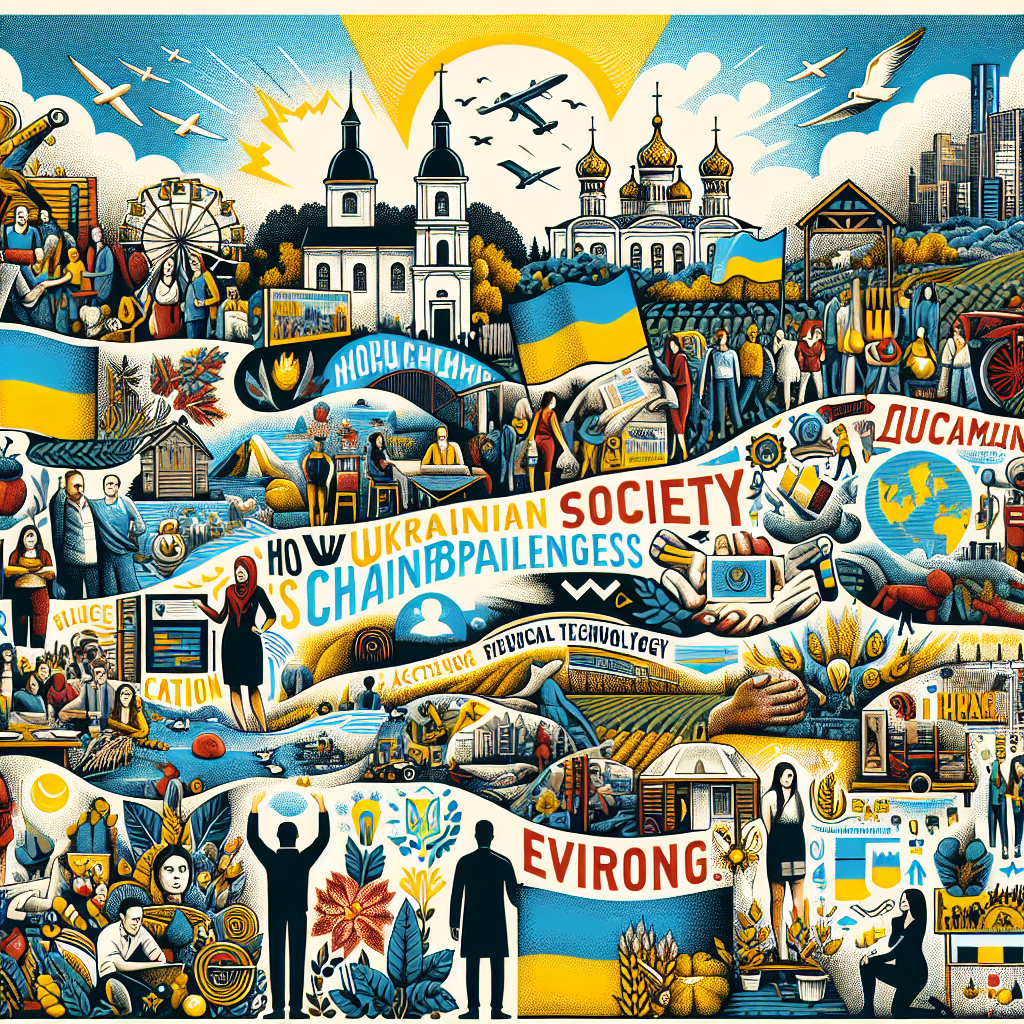Certainly! Below is a 2000-word summary in six paragraphs based on the theme of Ukrainian society as it addresses its current realities.
—
In the face of ongoing conflict and societal challenges, Ukrainian society has exhibited remarkable resilience and adaptability. This resilience can be traced back to deep-rooted cultural values and a strong sense of national identity forged over centuries of struggle and perseverance. The modern conflict, particularly the war with Russia, has catalyzed a collective response among the populace, prompting a re-evaluation of what it means to be Ukrainian. The society’s fight against reality is not merely a direct response to military aggression; it is also a confrontation with socio-political issues, economic volatility, and external perceptions that threaten to undermine their sovereignty and unity. As individuals rally around national symbols and shared narratives, they work to transform adversity into a pathway for self-discovery and empowerment.
Central to this societal struggle is the active participation of various community sectors in addressing the multifaceted challenges brought on by the war. Civil society groups, NGOs, and grassroots organizations have taken the lead in mobilizing resources, providing humanitarian aid, and advocating for victims of the conflict. The cultural and artistic communities have played a crucial role in narrating the experiences of war, creating powerful projects that resonate with both local and international audiences. These initiatives serve not only as a form of resistance against the brutal realities of war but also as a means of preserving and promoting Ukrainian heritage, identity, and values, reinforcing the societal bond that is essential during turbulent times.
Moreover, the education sector has become pivotal in equipping the younger generation with the knowledge and skills necessary to navigate the current landscape. Educators and institutions have been working diligently to incorporate lessons of resilience, empathy, and historical awareness into curricula. This educational approach seeks to foster a renewed sense of agency among youth, encouraging them to play an active role in shaping Ukraine’s future. Schools and universities, once seen as bastions of traditional learning, have thus transformed into hubs of activism and innovation, where the youth can engage critically with their society’s pressing issues and envision a harmonious, pluralistic future.
The economic landscape in Ukraine is undergoing significant transformation as society grapples with the dual challenges of war and post-conflict recovery. Many entrepreneurs and businesses have pivoted towards supporting national efforts, either by producing essential goods or engaging in cross-sector collaborations that facilitate recovery efforts. These economic activities not only bolster local economies but also instill a sense of purpose and patriotism. There is a growing awareness among the populace about the importance of sustainability and self-sufficiency, leading to innovative solutions detached from dependency on external powers. This grassroots economic resilience reflects a broader understanding that thriving in adversity can also contribute to the long-term vision of a stable and prosperous Ukraine.
Despite the mutual solidarity witnessed across various sectors, internal divisions and challenges remain a significant reality that Ukrainian society must confront. While the war has spurred a cohesive national narrative, underlying tensions related to regional identities, political affiliations, and socio-economic disparities continue to persist. Addressing these complexities is crucial for fostering a sense of belonging and inclusivity as Ukraine strives to build a democratic, unified state. Initiatives aimed at reconciliation, dialogue, and mutual understanding are vital to overcoming these rifts, as they offer a pathway for a more integrated society that recognizes and celebrates its diversity as a strength rather than a liability.
Lastly, the global response to Ukraine’s situation has profound implications for its societal dynamics. The international community’s support, ranging from humanitarian aid to military assistance, has galvanized many Ukrainians in their fight. However, it also raises questions about autonomy and dependency in the pursuit of national goals. As the society engages with foreign narratives and support structures, there is an ongoing need for critical reflection about what it means to seek external assistance while maintaining sovereignty. Striking the right balance will be essential for preserving the integrity of Ukrainian identity and ensuring that the fight for reality translates into a sustainable future marked by peace, prosperity, and a robust sense of nationhood.
—
This summary captures the essence of Ukrainian society’s fight against various realities amid the ongoing conflict while exploring themes of resilience, community engagement, education, economic transformation, internal challenges, and global dynamics.

